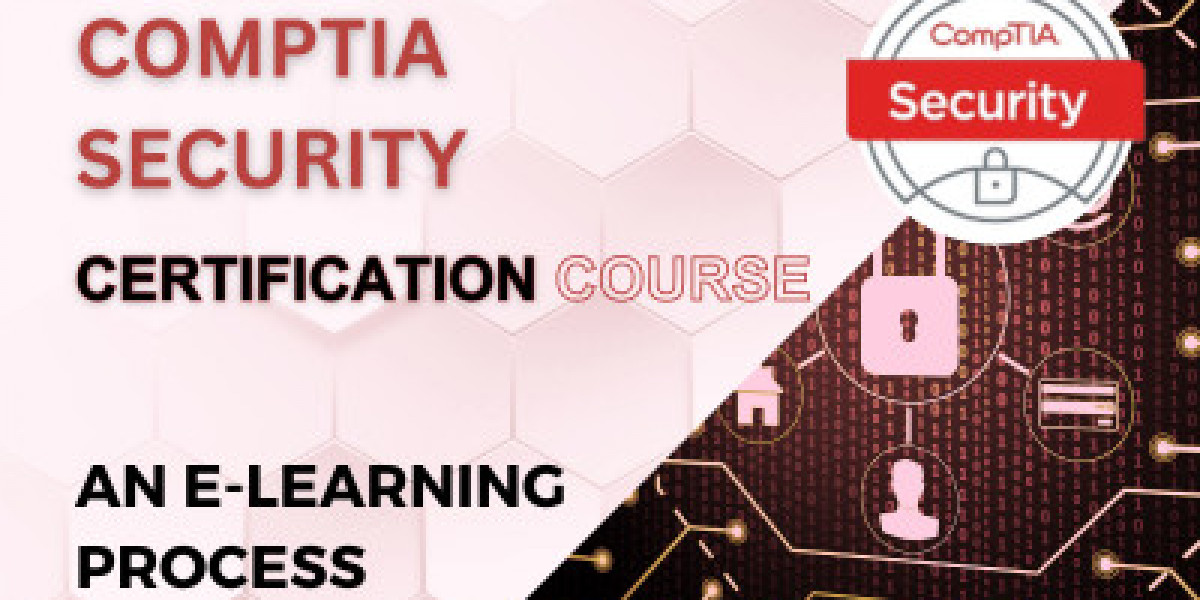In today's digitally-driven world, cybersecurity has become one of the most critical fields in the tech industry. Cyberattacks are constantly evolving, and organizations across all sectors are taking proactive steps to ensure their data is secure. With this growing demand for skilled security professionals, certifications have become essential for demonstrating expertise and validating knowledge. Among the numerous cybersecurity certifications available, CompTIA Security+ stands out as a highly respected entry-level credential.
This article delves into why the Security+ certification is important, what the exam entails, and how to effectively prepare for it. Whether you are an IT professional looking to expand your skill set or someone new to cybersecurity, this guide will provide insights to help you succeed.
Why Security+?
The CompTIA Security+ certification in Dallas is recognized globally as a foundational credential for cybersecurity professionals. It serves as a springboard for anyone starting in the field, offering a broad understanding of core security concepts, practices, and tools. The certification is vendor-neutral, meaning it covers general security principles rather than focusing on specific technologies or software, making it highly applicable across different industries and job roles.
Key Reasons to Pursue Security+
Industry-Wide Recognition: Security+ is widely recognized by employers across the globe. Government agencies, private companies, and educational institutions value this certification as proof of basic security knowledge and skills.
Entry-Level Cybersecurity Certification: As an entry-level certification, Security+ is ideal for those new to cybersecurity. It doesn’t require prior experience in the field, although some basic IT knowledge can be helpful.
Compliance with DoD Requirements: If you’re aiming to work in government or defense-related positions, the CompTIA Security+ certification is a critical credential. The U.S. Department of Defense (DoD) mandates Security+ as part of its DoD 8570.01-M directive, which outlines required certifications for personnel working in Information Assurance roles.
Job Opportunities: Achieving Security+ opens doors to a variety of roles such as systems administrator, network administrator, security specialist, and IT auditor. It is often seen as a stepping stone for more advanced certifications, such as Certified Information Systems Security Professional (CISSP) or Certified Ethical Hacker (CEH).
Skill Development: The certification equips you with the essential knowledge to identify and mitigate security risks, manage and maintain security policies, and secure network infrastructure. With organizations increasingly facing sophisticated cyber threats, professionals equipped with these skills are in high demand.
What to Expect in the CompTIA Security+ Exam
The CompTIA Security+ exam covers a wide array of security topics, ensuring that you gain a holistic understanding of cybersecurity. As of 2024, the latest exam version is SY0-601. Here’s a breakdown of the exam structure:
1. Exam Format and Structure
- Number of Questions: The exam includes up to 90 questions.
- Types of Questions: These are a mix of multiple-choice and performance-based questions (PBQs). Performance-based questions test your ability to apply knowledge in a simulated environment, offering a practical assessment of your skills.
- Exam Duration: You will have 90 minutes to complete the exam.
- Passing Score: The passing score for Security+ is 750 on a scale of 100-900.
2. Core Domains of Security+
The exam is divided into five key domains, each representing critical areas of cybersecurity:
Threats, Attacks, and Vulnerabilities (24%): This domain focuses on the various types of threats and vulnerabilities that can affect an organization’s network, systems, and applications. You will learn about different forms of malware, social engineering, DDoS attacks, and application-based vulnerabilities.
Architecture and Design (21%): In this domain, you will explore the principles of secure network architecture and system design. Topics include secure protocols, virtualization, cloud security, and network segmentation.
Implementation (25%): This domain covers the practical implementation of security tools and measures. It includes tasks such as configuring wireless security, implementing public key infrastructure (PKI), and using identity and access management controls.
Operations and Incident Response (16%): This section focuses on managing security incidents and responding to cyber threats. You’ll study intrusion detection systems (IDS), disaster recovery planning, and incident response procedures.
Governance, Risk, and Compliance (14%): Here, you will learn about the regulatory requirements, risk management processes, and policies that organizations need to follow to ensure compliance with security standards such as GDPR, HIPAA, and PCI-DSS.
3. Cost and Renewal
The Security+ exam costs around $392, although prices can vary depending on your location or if you purchase through a bundle or learning partner. The certification is valid for three years, after which you can renew it by earning Continuing Education Units (CEUs) or retaking the exam.
How to Prepare for the Security+ Exam
Success in the Security+ exam requires more than just understanding the theory behind cybersecurity. You need a comprehensive study plan that includes practice, hands-on experience, and familiarity with real-world scenarios.
1. Study Materials
The first step is to gather high-quality study materials. CompTIA provides official study guides, online training courses, and practice exams to help you prepare. Some popular resources include:
- CompTIA Security+ Study Guide by Sybex
- CompTIA Security+ All-in-One Exam Guide by Mike Meyers
- Official CompTIA Security+ CertMaster Practice
In addition to books and guides, CompTIA offers online courses and labs that provide hands-on experience with security tools and environments. Third-party platforms like Udemy, Coursera, and Pluralsight also offer comprehensive training courses.
2. Hands-On Labs
While theoretical knowledge is important, hands-on practice is equally critical. You can set up virtual labs to experiment with network configurations, firewalls, and security protocols. This practical experience will be especially helpful for the performance-based questions in the exam.
There are several online labs and simulators where you can practice:
- CompTIA CertMaster Labs: Official virtual labs for hands-on practice.
- TryHackMe: A beginner-friendly platform with practical labs on cybersecurity concepts.
- Hack The Box: An advanced platform that provides real-world hacking environments for practicing penetration testing and vulnerability assessment.
3. Practice Exams
Taking practice exams is one of the most effective ways to prepare for Security+. They help you assess your current knowledge, identify weak areas, and get used to the exam format. You can find practice exams in study guides, online platforms, or through CompTIA’s own CertMaster Practice platform.
4. Create a Study Plan
Studying for the Security+ exam requires a well-organized plan. Break down the exam objectives and allocate specific time slots for each domain. Start with your weakest areas and gradually work towards mastering all domains.
Here’s a basic study plan:
- Week 1-2: Focus on Threats, Attacks, and Vulnerabilities.
- Week 3: Study the Architecture and Design domain.
- Week 4-5: Review Implementation techniques.
- Week 6: Practice Incident Response and Governance concepts.
- Week 7: Take practice exams and review weak areas.
5. Join Study Groups
Engaging with a study group or community can be beneficial, especially if you enjoy collaborative learning. Online forums such as Reddit's r/CompTIA or the TechExams forum can provide support, resources, and discussions with fellow Security+ candidates.
Final Thoughts
The CompTIA Security+ certification is a valuable asset for anyone seeking to build a career in cybersecurity. It provides a strong foundation in essential security concepts and practices while opening doors to entry-level jobs and further certifications. With thorough preparation, hands-on experience, and practice, you can pass the Security+ exam and embark on a rewarding career in one of the fastest-growing fields in IT.
Ultimately, the time and effort invested in studying for Security+ not only boosts your resume but also equips you with the knowledge and confidence to tackle real-world cybersecurity challenges.







